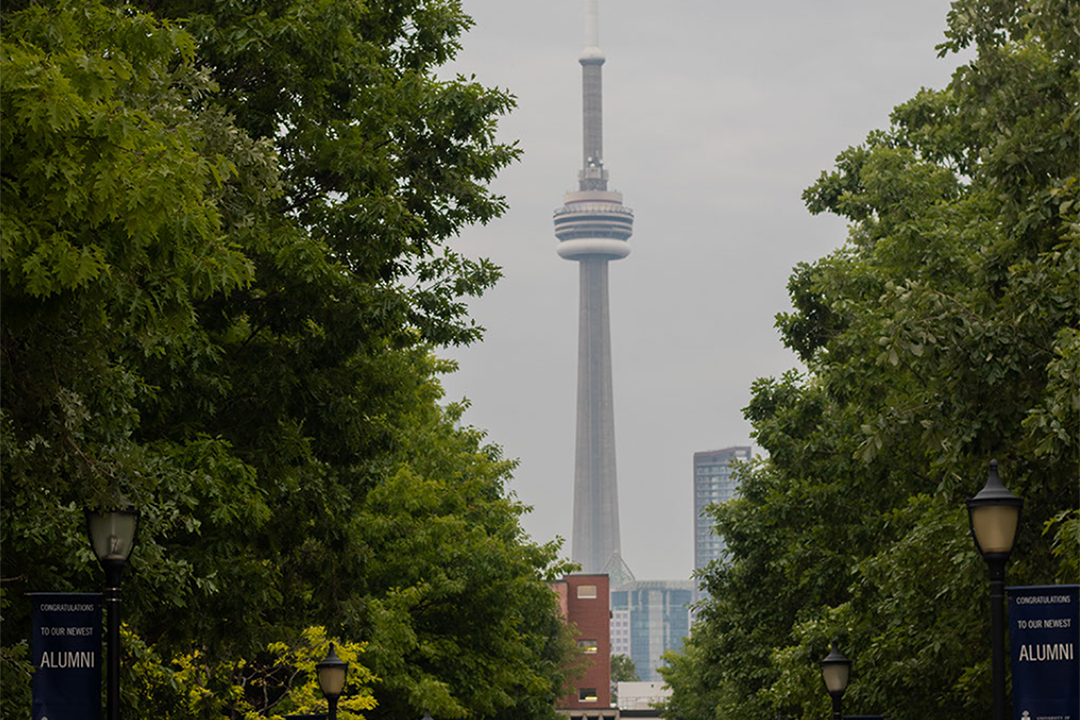On June 5, Environment Canada released a special air quality statement for Toronto. With air pollution blowing in from wildfires in Quebec and northeastern Ontario, Toronto’s air quality health index (AQHI) climbed to “moderate risk” levels for much of June 8 and 9. Originally, the federal government predicted that Toronto’s AQHI score might go up to “high risk” during the evening of June 8.
U of T has not announced any changes to convocation ceremonies, which are happening in person at Convocation Hall. According to the federal government, when the air quality health index is “high risk,” people spending time outside — such as graduating students and their families — may want to consider rescheduling strenuous outdoor activities and should monitor themselves for breathing difficulties and eye or lung irritation. Smog poses particular risk to seniors, infants, young children, and people with chronic health issues such as heart disease, cancer, or asthma. People at particular risk are particularly encouraged to avoid strenuous outdoor activity, such as exercising, and may want to consider avoiding these activities even when the AQHI is “moderate.”
Air pollution from wildfires carries fine particulate matter — tiny particles released from burning materials — that can cause health issues when breathed in, including infection. The statement recommends wearing a mask outside, which can reduce the amount of particulate matter the wearer breathes in. According to an article in Time, an N95 or higher rated mask is ideal, although wearing less effective protective equipment, like a surgical mask, is better than not wearing a mask at all.
For people sticking it out indoors, closing windows and using a portable air cleaner can limit exposure. U of T maintains a directory of the air filtration levels in many buildings across the three campuses. The US Environmental Protection Agency recommends filters with Minimum Efficiency Reporting Value (MERV) ratings of 13 and above to remove the particles released from wildfires; Robarts, the Hazel McCallion Library, and the UTSC Student Centre all have filtration systems with MERV ratings above 13.
For an up to date forecast, visit the federal weather service’s website.


